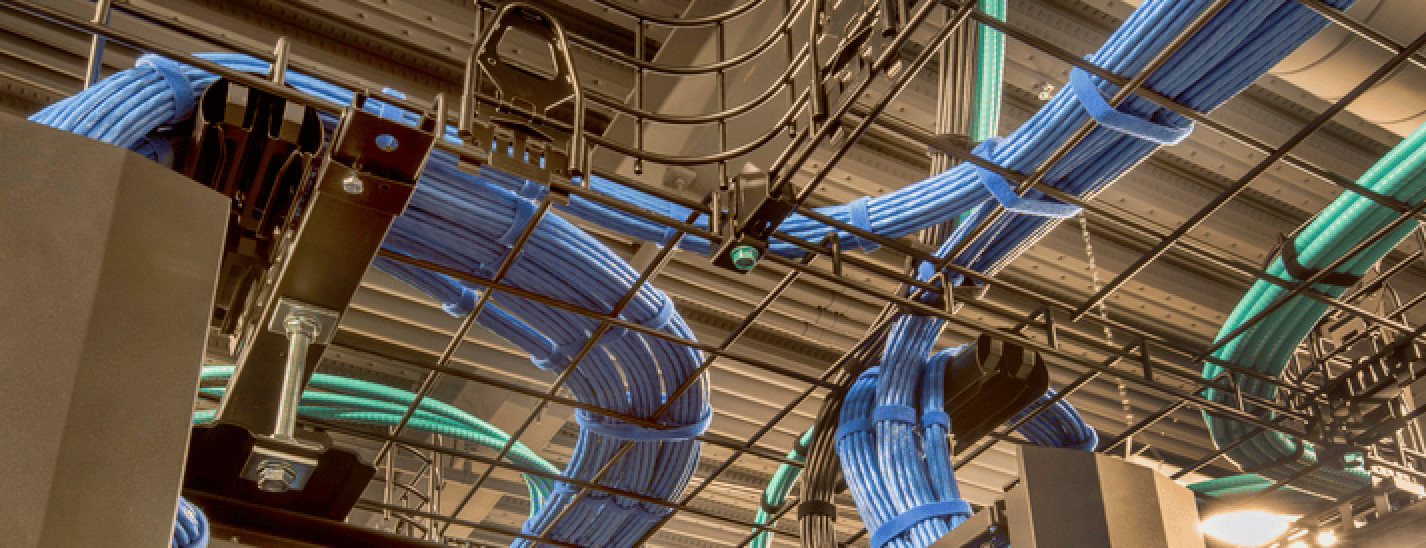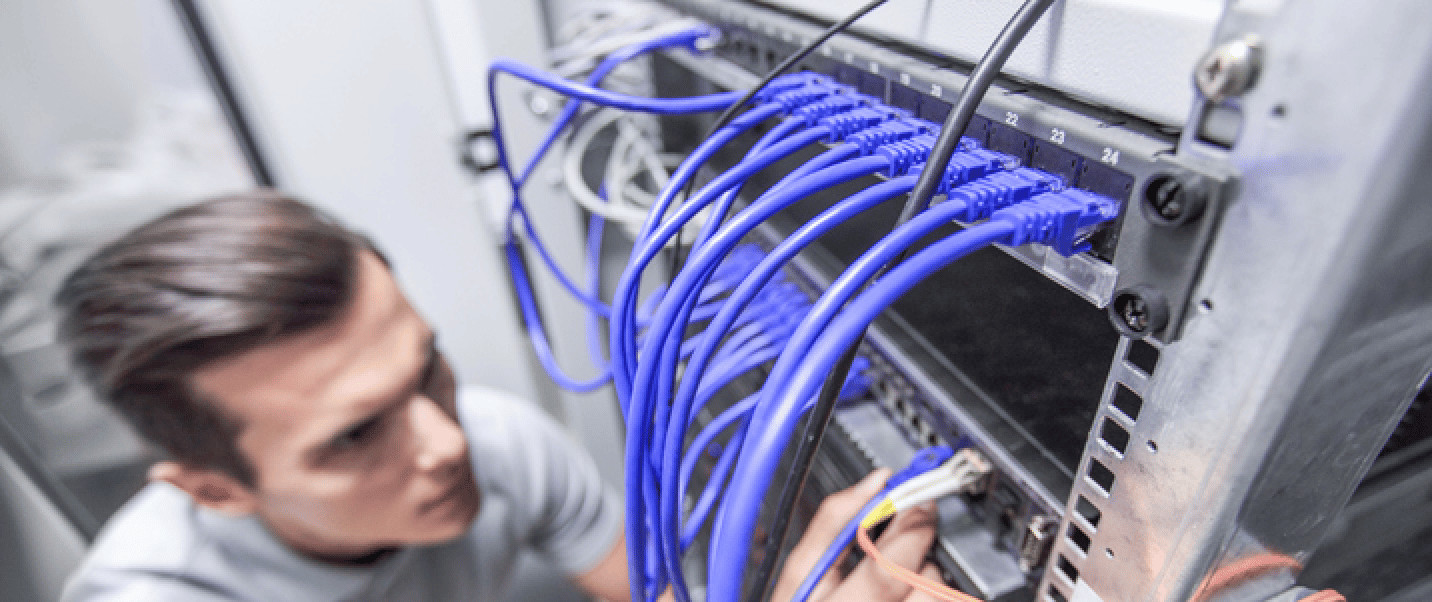Get in touch with us today to find out how can we help you.
Network Cabling Services in Houston, San Antonio and Austin
At ICS, we provide top-tier Network Cabling Services in Houston, San Antonio and Austin, designed to optimize your network infrastructure for maximum performance and reliability. Whether you are setting up a new office or upgrading your existing network, our expert team specializes in designing, installing, and maintaining high-quality cabling systems tailored to your specific needs.
We offer a full range of network cabling solutions, including structured cabling, fiber optic installation, and cat5e/cat6 cabling, all backed by our extensive industry knowledge. Our services ensure seamless connectivity across your organization, enhancing speed, scalability, and security. ICS is committed to providing businesses in Houston, San Antonio, and Austin with reliable, future-proof cabling infrastructure that supports today’s growing technological demands.
From network design to system integration, ICS ensures your network is capable of supporting modern applications, including cloud solutions and cybersecurity systems. With our professional network cabling services, you can rest assured your organization is equipped for both current and future IT needs.

What Are Network Cabling Services?
Network cabling services are essential for creating and maintaining the backbone of a company’s IT infrastructure. These services involve the installation, design, and management of cabling systems that enable communication between devices, computers, and servers across the business network. At ICS, we specialize in providing comprehensive Network Cabling Services in Houston, San Antonio and Austin, ensuring your network operates efficiently and securely.
Our expert team is equipped to handle a variety of cabling needs, including copper and fiber optic installations, structured cabling, and data center cabling. Whether you’re setting up a new office, expanding an existing network, or upgrading outdated systems, our network cabling services are tailored to meet the specific demands of your business. We use high-quality materials and the latest techniques to ensure that your network infrastructure is scalable, reliable, and built to last. Additionally, our services help improve network performance, enhance security, and reduce downtime, allowing your business to stay connected and productive.
Types of Network Cabling for Efficient and Scalable Infrastructure
When it comes to building a robust and reliable network infrastructure, selecting the right type of network cabling is crucial. ICS offers various network cabling services in Houston, San Antonio and Austin to meet the diverse needs of businesses.
Below are the main types of network cabling to consider for your organization:
- Structured Cabling: This is the foundation of modern networks, providing organized and scalable infrastructure for voice, data, and video services.
- Fiber Optic Cabling: Ideal for high-speed data transfer over long distances, fiber optic cabling offers superior bandwidth and reliability without electromagnetic interference.
- Copper Cabling (Cat5e, Cat6, Cat6A): A cost-effective and reliable choice for various network speeds and data requirements, these cabling types are commonly used for both small and large office setups.
- Wireless Networking: Integrating Wi-Fi with traditional cabling systems ensures flexibility, allowing businesses to support mobile devices while maintaining secure and stable connections.
ICS provides tailored network cabling solutions to help your business stay connected and prepared for future growth.
Why Choose Professional Network Cabling Services in Houston, San Antonio and Austin
Choosing professional Network Cabling Services in Houston, San Antonio and Austin is crucial for ensuring the reliability, efficiency, and scalability of your network infrastructure. At ICS, we specialize in providing expert Network Cabling Services in Houston, San Antonio and Austin, delivering high-quality solutions tailored to meet the unique needs of businesses in these regions.
Here’s why partnering with a professional cabling service provider can significantly benefit your organization:
Benefits of Hiring a Professional Cabling Service Provider
- Optimized Network Performance
Professional network cabling ensures that your infrastructure is properly organized, minimizing network disruptions and downtime. With proper installation, businesses can experience improved data transfer speeds, reduced latency, and seamless connectivity across devices and locations. - Compliance with Industry Standards
When you work with ICS, you’re guaranteed compliance with industry standards and best practices. We follow the latest regulations and installation guidelines to ensure that your network infrastructure is robust, secure, and up to code. - Cost-Effective Solutions
Professional installations reduce the likelihood of costly repairs down the road. With expert cabling services, you can avoid future expenses related to network failures or inefficient configurations, saving you money in the long term.
How Professional Installations Ensure Better Performance and Reliability
- Precise Cable Organization
Properly structured cabling ensures a clean, organized setup, minimizing cable tangling, interference, and clutter. This helps prevent potential performance issues such as signal degradation and ensures smoother data transmission. - Long-Term Reliability
Professional network cabling services from ICS are built to last. We use high-quality materials and advanced installation techniques that enhance the durability and performance of your network, providing you with a reliable connection for years to come. - Minimized Downtime
Our expert technicians ensure that your network setup is both efficient and error-free, preventing unnecessary delays or disruptions in your operations. A well-installed system reduces the chances of outages or interruptions that can hinder business activities.
Customization for Different Business Needs
- Tailored Solutions
Every business has unique networking requirements. ICS specializes in creating custom cabling solutions based on your specific needs, whether you require fiber optic cabling for high-speed performance, structured cabling for large offices, or wireless solutions for flexible connectivity. - Scalable Infrastructure
As your business grows, so do your network demands. Our professional network cabling services ensure that your system is easily scalable to accommodate future growth, whether it’s adding more devices, expanding office spaces, or upgrading to more advanced network technology.
Common Network Cabling Issues and Solutions
Network cabling is a critical component of your business infrastructure, but like any system, it can face challenges that affect performance. At ICS, we offer Network Cabling Services in Houston, San Antonio, and Austin, helping you resolve common cabling issues and maintain smooth operations.
Here’s a look at common network cabling issues and how our expert solutions address them:
- Troubleshooting Cabling Problems: Signal Loss, Slow Speeds, and Interference
Poor cabling installation or damage can cause these issues. Our team quickly diagnoses and fixes the root cause to restore fast, reliable connections. - How Regular Maintenance Can Prevent Cabling Failures
Routine checks ensure that your network runs smoothly and avoids downtime caused by neglected cables or outdated systems. - Addressing Power Over Ethernet (PoE) Challenges in Cabling
We ensure your PoE setup delivers consistent power and data to devices, optimizing your infrastructure for reliability.
The Comprehensive Process of Network Cabling Installation
At ICS, we specialize in providing high-quality Network Cabling Services in Houston, San Antonio, and Austin, ensuring a seamless installation experience from start to finish. Our process is designed to optimize your network infrastructure for both performance and scalability.
Here’s how we approach network cabling installation:
- Site Evaluation and Network Design
We start by assessing your current infrastructure and understanding your business needs. This allows us to create a custom network design that ensures efficiency and scalability. - Structured Cabling Installation and Testing
Our expert team installs your structured cabling system, adhering to best practices for maximum performance. We conduct comprehensive testing to guarantee everything is working smoothly. - Final Inspections and Certification
After installation and testing, we perform final inspections to ensure compliance with standards and provide certification, ensuring your network is ready for reliable long-term use.
How to Maintain Your Network Cabling System with ICS
Proper maintenance of your network cabling system ensures optimal performance and minimizes downtime. At ICS, we specialize in Network Cabling Services in Houston, San Antonio, and Austin, offering expert solutions to help businesses keep their cabling systems in excellent condition.
- Regular Inspections and Testing
Conducting regular inspections and testing helps identify issues early, ensuring that your cabling system runs smoothly without disruptions. - Common Network Maintenance Practices
Routine maintenance includes managing cables, checking connections, and updating software to keep the system performing optimally. - Upgrading Your Cabling as Technology Evolves
As technology advances, upgrading your cabling infrastructure is essential for supporting higher speeds and greater bandwidth.
Reliable Network Cabling Services for Businesses in Houston, San Antonio, and Austin with ICS
At ICS, we specialize in providing expert Network Cabling Services in Houston, San Antonio, and Austin, ensuring your business has the reliable and scalable infrastructure it needs to thrive. Our team of professionals offers tailored solutions for designing, installing, and maintaining your network cabling system, optimizing performance and security. Whether you’re upgrading your network or starting from scratch, ICS delivers high-quality services to keep your business connected and running smoothly. Contact us today to discover how our network cabling services can enhance your business infrastructure and support your long-term success!

ICS is a Texas-based 40-year-old technology company specializing in Managed IT, VoIP, Video Conferencing and Video Surveillance solutions for US and International businesses. ICS has over 4000 regional installations and specializes in multi-site businesses between 25 and 2500 employees. ICS’s customers enjoy the experience of ICS’s Total Care program which provides clients flat fee services with obsolescence and growth protection. Whether a customer elects to deploy their IT, Video Conferencing or VoIP in the cloud or on the customer’s premise, ICS can provide a full turn-key solution for our clients under one flat monthly fee.




